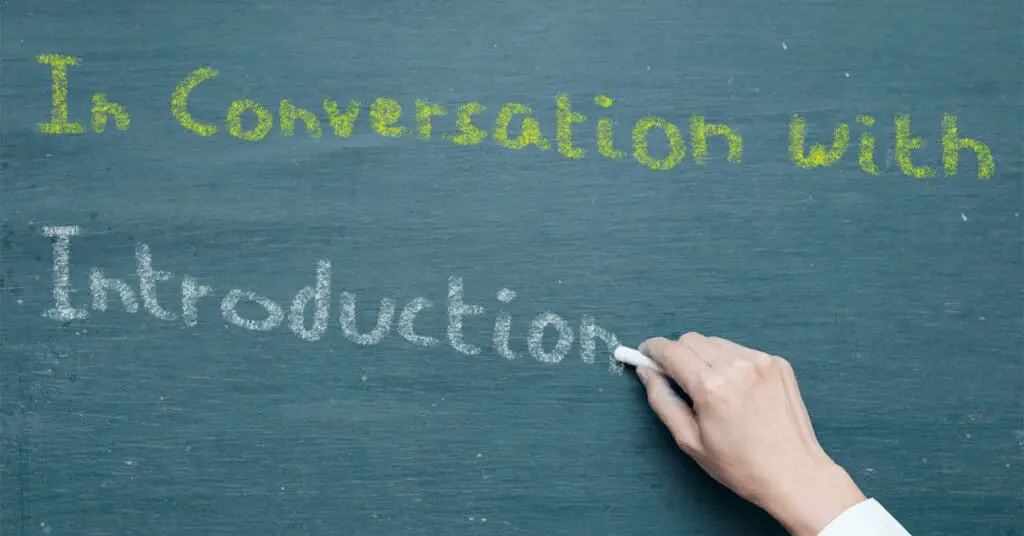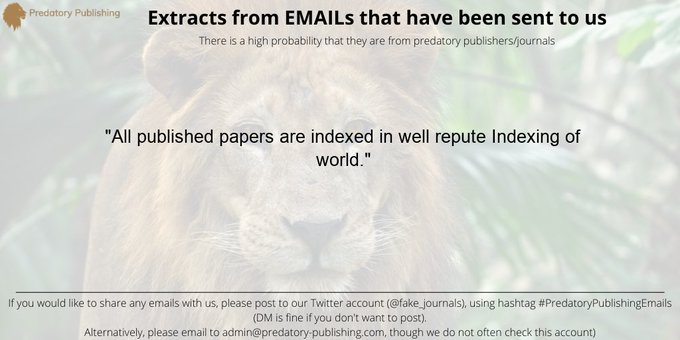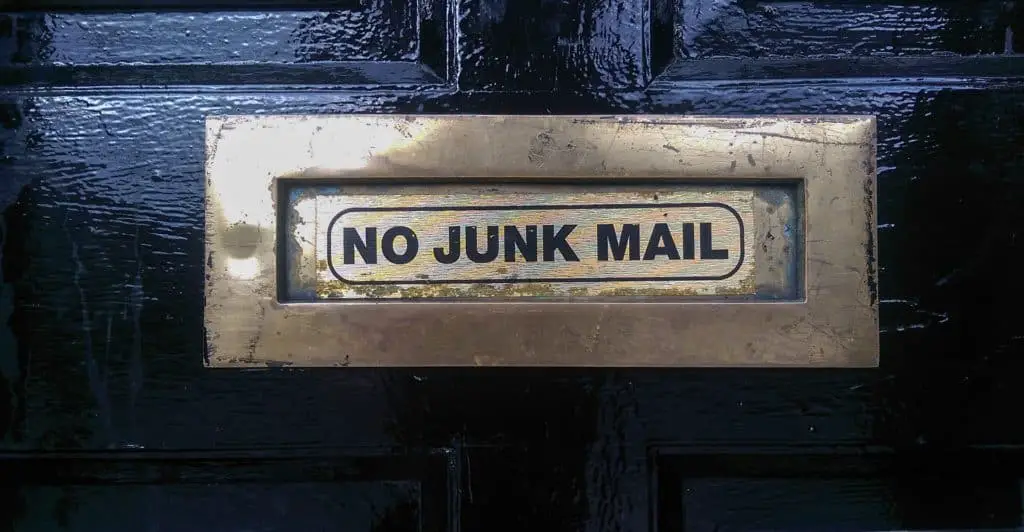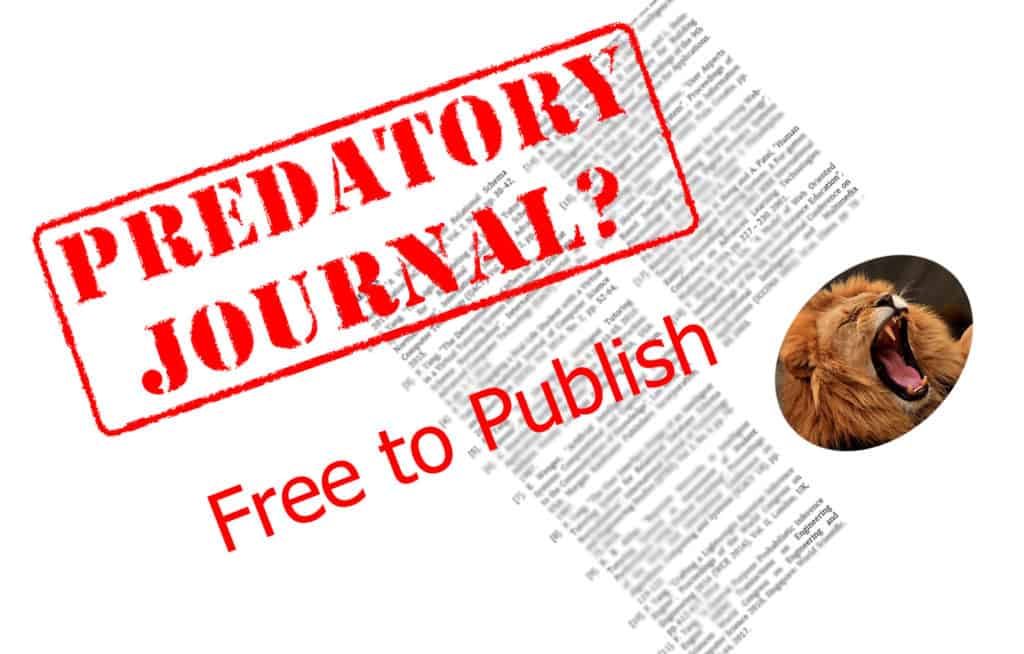Disclosure: This page contains affiliate links. This means, at no additional cost to you, we receive a commission if you click through and make a purchase.
As part of our Twitter account, we tweet snippets from emails that have been passed to us. This image is typical of an email snippet that we have received.
But this is only part of the story. Sometimes, the complete email is more informative and, sometimes, it is worth seeing a more complete version of the email correspondence, if the person that received the email decides to respond.
This series of articles addresses this, providing full email trails, which we hope are both interesting, informative and useful.
Introduction
It is a sad fact of life that we often wake up to a couple of emails from predatory publishers that are asking you to submit to their journals. We recently showed one such email, along with the correspondence that followed after person that received it responded. You can read the full email exchange in our article “Should you negotiate with a predatory journal?“
If you want to dig a little deeper into spam emails, you might want to take take a look at the following two books [affiliate links] – Anti-spam measures and Regulating spam.
The best course of action, if you receive an email from a predatory publisher, is to simply delete it, which is what we recommend in “How to respond to an EMAIL from a predatory publisher?“
In that article though, we also suggest that you might like to strike up a conversation. This should not be entered into lightly but for those of you that would like to amuse yourself (and hopefully us), it could be worth considering.
In these short articles, we present email exchanges between a journal and an author. We should be clear that we are not saying that the journal involved is definitely a predatory (or fake) journal. This is for you to decide. We just want to give you the opportunity to read these email exchanges.
What will be show?
We will show the name of the journal, the publisher and the person who sent the original email. We believe that this is fair as the email is likely to have been sent to hundreds, if not thousands, of people so it can considered to be in the public domain.
We will not show the name, affiliation etc. of the person that received it, and responded, as we do not feel that it is right to share this information. The only time we will show this information is if the person involved asks us do so.
The purpose of these articles
In these short articles, we will present an email exchange between a journal and an author. The purpose is two-fold:
- We want them to be educational, highlighting some of the things that journals will say in order to get you to submit.
- We want to entertain you, as some of the exchanges are quite funny, if not ludicrous. That is, they might give you some light relief in an otherwise busy day and a break from more serious work.
Are the journals predatory/fake?
We are not saying that the journal involved in the email exchange is definitely a predatory (or fake) journal. There would need to be additional checks, to confirm this (or not). You might want to look at some of our other articles if you want to know how to do this or, indeed, you want to know what predatory publishing is.
- What is predatory publishing? | Read these three articles
- What is Predatory Publishing? | … and should you care?
- Three quick ways to spot a predatory journal
- How to spot a fake journal | A case study
Viewing similar articles
If you have an interest in these articles, you might just want to access the articles that focus on “EMAIL Correspondence“. You can do that by following this link, which shows all of our articles in this category.
We need your help
We can only do these articles if you send us the email correspondence that you have had.
If you would like to contribute, please read the following:
- We will keep you anonymous. As we say above, we will name the journal, but not the person that received/responded to the email.
- You can send the email trail to admin@predatory-publishing.com. We only check this mailbox infrequently, so please do not expect an immediate response.
- It really helps us if you can send the original versions of the email or, at least, text versions. This enables us to copy/paste, rather than us having to retype the text from, say, scanned images.



